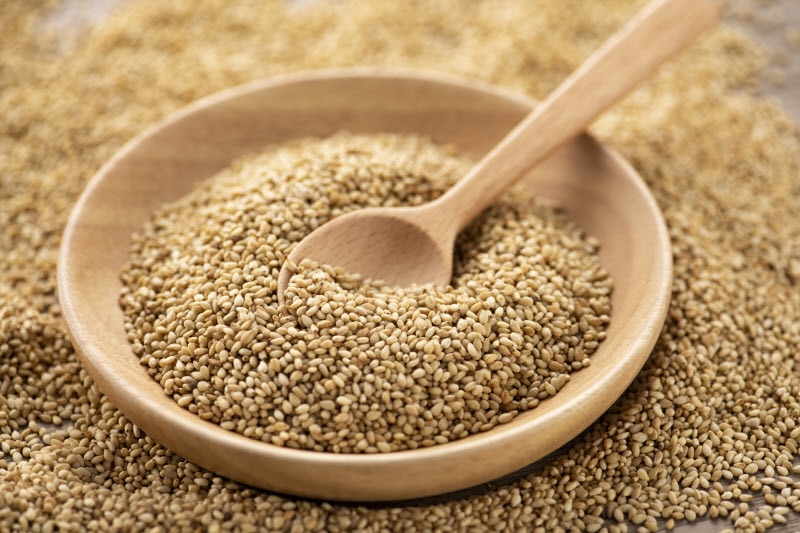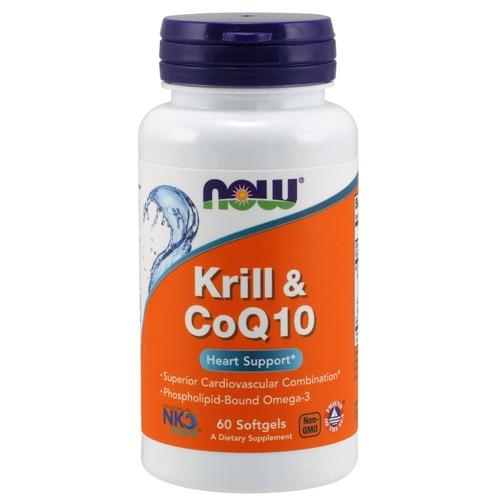The human body makes some
CoQ10 on its own, mostly in the pancreas, kidneys and liver, however you also obtain some from certain foods that you eat. It’s believed that getting more from your diet can offer benefits when it comes to promoting healthy aging.

Due to how levels tend to decline with age, and among those who are chronically ill or stressed, you may especially benefit from consuming more CoQ10 if you’re over the age of 40, if you take statin drugs, or if you have diabetes, cancer or congestive heart failure.
Upping your intake via a healthy diet can have payoffs such as helping you to better absorb nutrients, including antioxidants like vitamin C and E, which supports a
healthy metabolism, higher energy levels and overall cardiovascular and cognitive health.
What Is CoQ10?
CoQ10 is short for coenzyme Q10, which is a compound that acts like an
antioxidant in the body to help defend against oxidative stress. It’s also sometimes called ubiquinone or ubiquinol, which can be found in some supplements promoted as having “anti-aging effects."
†
What does CoQ10 do exactly? It’s found in the mitochondria of cells (nicknamed the “powerhouse” of cells) and supports healthy energy production, transportation of electronics, and utilization of nutrients from the foods you eat.
One of the most important things that this nutrient does is facilitate “mitochondrial ATP synthesis,” which is the conversion of raw energy from foods (carbohydrates and fats) into the form of energy that our cells use called adenosine triphosphate (ATP).
Because it can help to neutralize free radicals that damage cells, low level of CoQ10 are thought to be linked to higher risk for certain age-related health conditions — including diabetes, cancer, heart disease and high blood pressure and neurological conditions.
†
Best CoQ10 Foods
While it’s possible to
supplement with CoQ10, in forms such as capsules, tablets and IV, you can also acquire more by emphasizing certain foods in your diet.
Some of the best sources include fish, grass-fed meats and poultry, organ meats, and certain whole grains, nuts and seeds. Animal-derived are the richest in Coq10, however plant foods like some beans, nuts, and some fruits and vegetables also provide some.
Here are some of the best CoQ10 foods to include in your diet:
1. Liver, heart and other organ meats
Description:
Organ meats including pork or beef liver and heart are considered the densest dietary sources of this nutrient. Unfortunately, many people shy away from eating organ meats regularly, however they are chock full of many important nutrients including iron and B vitamins.
How to add it to your diet: Try combining organ meats with ground beef or ground poultry to make it more appealing, such as in meat balls, meat loaf, etc.
2. Grass-fed beef
Description: Second to organ meats, beef is the best source of Coq10 (plus healthy fats, zinc and iron). Opting for
grass-fed beef is wise since it tends to be richer in nutrients overall, including healthy fats.
How to add it to your diet: Most people already include some beef in their diets, at least from time to time. Simple ways to add some to your diet include making burgers, meatballs, stews and beef and vegetable stir-fries.
3. Fatty fish (including tuna, trout, mackerel and herring)
Description: Tuna and other types of fatty fish are not only good sources of protein, omega-3 fats and B vitamins, but they also supply you with Coq10. The benefit of eating fatty fish is that it can increase your intake of not only coQ10 but also anti-inflammatory omega-3 fats, which are hard to find in many foods.
How to add it to your diet: Try adding freshly cooked or canned fish to fish patties, tuna salad or served over steamed veggies with olive oil and lemon juice.
4. Chicken
Description: If you tend to opt for white/light meat over beef or pork,
chicken is a good addition to your diet in order to increase your intake of Coq10. It’s also high in protein, B vitamins, iron and more.
How to add it to your diet: Add cooked chicken to a big salad with fresh veggies, try it in chicken soup with bone broth, make chicken patties or chicken salad, or add it to a stir-fry.
5. Pistachios and sesame seeds
Description: If you tend to eat a
mostly-plant based diet, including nuts and seeds in your meals is a great way to get more CoQ10, healthy fats and trace minerals.
Nuts and seeds also provide you with fiber and other essential nutrients such as vitamin E and selenium.
How to add it to your diet: Add nuts and
sesame seeds to salads, snack on them as part of a healthy trail mix, make homemade low-sugar granola using them, or add them to coatings when making chicken or fish.
6. Unrefined olive oil
Description: Second to soybean and corn oil (which are often processed and not recommended for other reasons), unrefined, Italian olive oils have been found to have the highest levels of CoQ10 of most oils. Another benefit of including olive oil in your diet is the rich source of monounsaturated fats and vitamin E and vitamin K.
How to add it to your diet: Use virgin olive oil drizzled over veggies or in salad dressings, and regular
high-quality olive oil when cooking at low heats (such as quickly sautéing in a pan). You can also add some to pizzas, pasta and rice dishes, sauces and marinades, etc.
Other Tips:
Because CoQ10 is a fat-soluble nutrient, it’s best absorbed when consumed with a small amount of healthy fats, such as
olive oil, avocado or fat from meat or eggs.
There isn’t currently a specific dietary intake recommendation for CoQ10 that has been established by health authorities; rather it’s generally recommended that you eat a wide variety of whole foods to get enough, and possibly consider supplementing if you’re at high risk for having low levels (in supplement form, CoQ10 dosage recommendations often range from 30 to 90 milligrams per day, but can go up to 1,200 milligrams in some cases).
†
†These statements have not been approved by the Food and Drug Administration. These products are not intended to diagnose, treat, cure or prevent disease.
 Due to how levels tend to decline with age, and among those who are chronically ill or stressed, you may especially benefit from consuming more CoQ10 if you’re over the age of 40, if you take statin drugs, or if you have diabetes, cancer or congestive heart failure.
Upping your intake via a healthy diet can have payoffs such as helping you to better absorb nutrients, including antioxidants like vitamin C and E, which supports a healthy metabolism, higher energy levels and overall cardiovascular and cognitive health.
Due to how levels tend to decline with age, and among those who are chronically ill or stressed, you may especially benefit from consuming more CoQ10 if you’re over the age of 40, if you take statin drugs, or if you have diabetes, cancer or congestive heart failure.
Upping your intake via a healthy diet can have payoffs such as helping you to better absorb nutrients, including antioxidants like vitamin C and E, which supports a healthy metabolism, higher energy levels and overall cardiovascular and cognitive health.



